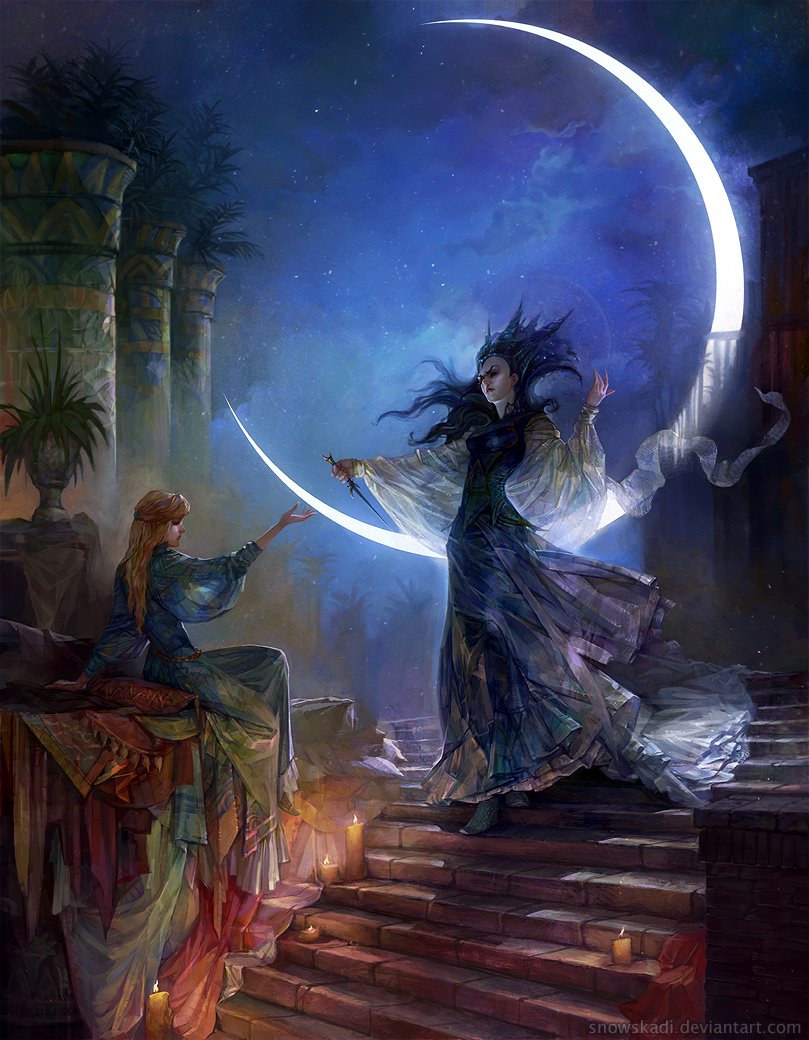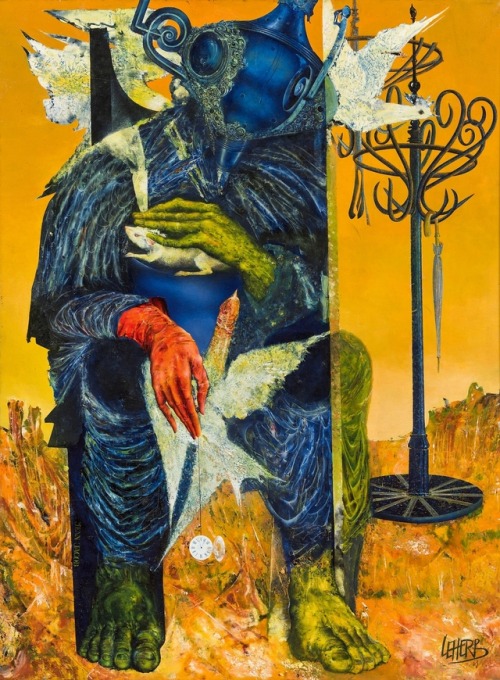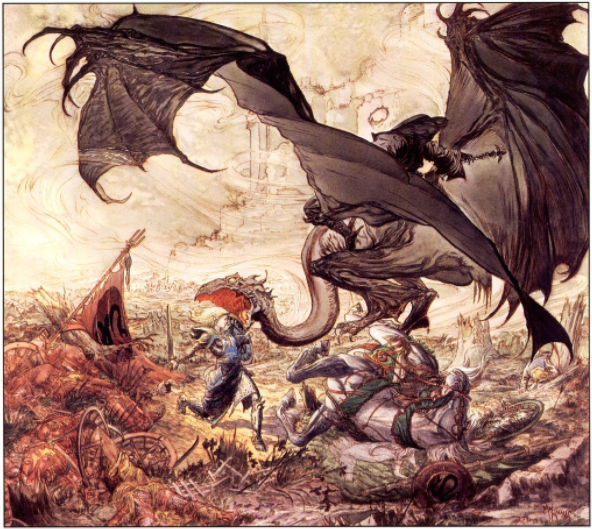SENSOR SWEEP: Constantly Shifting Spotlights, Cataclysmic Paradigm Shifts, Metaphysical Exploration, and Opportunistic Tsunami
Monday , 9, October 2017 Sensor Sweep 12 Comments D&D (Gaming While Conservative) My Gaming Shelf — “Other books have come and gone. I’ve had dalliances with the latest New Hotness, from Gygax’s dense and intellectual AD&D to today’s light and childish edition. I’ve piloted mechs in 3rd edition and ridden the Krynn Express adventures, rails and all. I’ve been to cons where escaping the trap of storygaming required me to gnaw off my own leg and felt one limb to be a fair trade for saving myself from an hour of Forge inspired madness. None of these have left an impression on me. After two or three sessions, it became obvious that all of these games fell into the trap of, ‘Let me imagine that for you,’ that dominates today’s RPG community.”
D&D (Gaming While Conservative) My Gaming Shelf — “Other books have come and gone. I’ve had dalliances with the latest New Hotness, from Gygax’s dense and intellectual AD&D to today’s light and childish edition. I’ve piloted mechs in 3rd edition and ridden the Krynn Express adventures, rails and all. I’ve been to cons where escaping the trap of storygaming required me to gnaw off my own leg and felt one limb to be a fair trade for saving myself from an hour of Forge inspired madness. None of these have left an impression on me. After two or three sessions, it became obvious that all of these games fell into the trap of, ‘Let me imagine that for you,’ that dominates today’s RPG community.”
Gamma World (Jon Mollison) The Dignity of Old School RPGs — “Modern games feel like action movies – they have a constant hustle and bustle to them. The older games I’ve had the fortune to sit in feel far more like a smoking club – a group of guys sitting around a table discussing the events of the day. The question at hand during this sessions was always one of discussing what certain events mean, and how we as a group formulate a response. Which is a welcome change to the constantly shifting spotlight of more modern games.”
Publishing (Kairos) The Currentest of Years — “A cataclysmic paradigm shift is underway that will soon overturn the publishing landscape as we know it. Indie has been overtaking tradpub for years, and now the Big Five New York publishers’ sole advantage–their paper distribution monopoly–is about to collapse. When B&N goes, it will take the tradpub midlist with it. You’ll know the old era is over when current tradpub authors start trying to go indie. But as Nick forecasts and Scalzi confirms, former tradpub darlings are woefully unprepared to handle the increased workload.”
Role Playing Games (Walker’s Retreat) How To RPG: Fortune Favors The Bold — “There is absolutely no need whatsoever to fudge things for or against the players. The dice are plenty sufficient to account for random factors, so if the players legitimately secure victory before engaging in battle, don’t you dare fudge it otherwise. Let them enjoy the victory that they properly prepared for and executed effectively.”
Pulp Revolution (E. C. Blake) My latest column: Pulp Fiction — “And yet their spiritual descendants live in science fiction and fantasy in the form of the ‘Big Three’: the aforementioned Analog, Asimov’s Science Fiction Magazine (launched in 1977), and The Magazine of Science Fiction and Fantasy(1949). In the larger literary world, there’s a movement called New Pulp (‘stories by modern fans and authors that recreate the style of adventures that appeared in the pulp magazines during the pulp era,’), which has an annual convention called PulpFest. And in science fiction specifically, there’s the Pulp Revolution.”
Pulp Revolution (Goodreads) Adam Smith’s Reviews > Reptilian Wanderer — “Dominika sets the bar for surreal imaginings with every piece she writes. This book starts off with a simple premise: lizards on a spaceship. What follows is a metaphysical exploration of the very foundations of what it means to be, and an examination of the cyclical relationship between creator and created. If you enjoyed her first work ‘I, The One,’ this story will not disappoint. From here on out, whatever she publishes gets moved to the top of my reading list.”
Gamma World (Just The Caffeine Talking) Island of Lost Games: Metamorphosis Alpha — “It’s an interesting hybrid of the game structures we now classify as ‘sandbox’ and ‘story’ games. Initially the Warden is a huge sandbox full of random encounters and perils to overcome, but as the characters discover more about their world it segues neatly into a story structure of unifying the warring tribes and making the starship great again.”
Appendix N (Dyvers) The Whole of Fantasy and Dungeons & Dragons — “Unfortunately James’ definition of pulp fantasy ignores a large part of what made up the pulp fantasy of the era. As a result, if we were to hold to his definition than we wouldn’t consider pulp standards like Doc Savage, Buck Rogers, Tarzan of the Apes, The Shadow, Green Lama, or Zorro as something that we should look to for inspiration in our Dungeons & Dragons games. Our heroes would be craven things who acted out of a slavish devotion to selfishness rather than because they were doing the right thing. We wouldn’t have alien battles, tanks, high speed car chases, mystical hokum, or super heroics. Instead we would be bound to endlessly repeating pale imitations of Howard’s adventures and Tolkien’s quests.”
 Pulp Revolution (Grandmother’s Floor) The Journey to Praxis — “I loved the original Alien movie, because it was basically truckers in space. With Praxis, I wanted to do a warehouse in space. Since I had worked in warehousing a lot growing up, I had plenty of knowledge to assist me. Outlining and writing was fun, I really felt alive at times and loved crafting the story as it fell onto the screen, one word at a time. When I eventually finished, I thought I had written a masterpiece and that my farts would smell of roses, especially as it finished at one hundred and six thousand words long. Brian Niemeier had agreed to edit the book, so I passed it over to him and patiently waited. Eventually, Brian got back to me, and told me a few things I was not expecting to hear.”
Pulp Revolution (Grandmother’s Floor) The Journey to Praxis — “I loved the original Alien movie, because it was basically truckers in space. With Praxis, I wanted to do a warehouse in space. Since I had worked in warehousing a lot growing up, I had plenty of knowledge to assist me. Outlining and writing was fun, I really felt alive at times and loved crafting the story as it fell onto the screen, one word at a time. When I eventually finished, I thought I had written a masterpiece and that my farts would smell of roses, especially as it finished at one hundred and six thousand words long. Brian Niemeier had agreed to edit the book, so I passed it over to him and patiently waited. Eventually, Brian got back to me, and told me a few things I was not expecting to hear.”
Appendix N (BooksGoSocial) Junkyard Druid – An Interview with MD Massey — “I wanted to write about druids that were less Dungeons & Dragons and more like the druids of legend. While historical druids were priests and clerics, if you look at the druids in the Irish myths they spent a lot of their time acting as kingmakers and influencing major events. They were more like Gandalf or Allanon than the glorified eco-warriors you see depicted in most modern fantasy fiction.”
Superversive (Noblebright) Fantasy for our time: my writer’s manifesto — “Fantasy’s strength as a genre is showing the inner battle that occurs daily in every person’s heart. And even though Martin claims that distinction for himself, I would argue that his books are much less morally complex than Tolkien’s. Heroism is simply not a possibility in Martin’s vision.”
That’s Deep, Man (Tor.com) Ghostbusters is a Surprising Antidote to Lovecraft’s Dismal Worldview — “We first meet Venkman as he’s conducting a fake test of psychic ability as an excuse to hit on a co-ed. Venkman subjects two students, a young man and woman, to the old “tell me what picture’s on this card that you can’t see” test. Each wrong guess earns the guesser a shock. Venkman indiscriminately shocks the male student, even when he guesses right, and never shocks the female student, who guesses wrong every time—then he flatters the girl by talking up her extensive psychic gifts, and parlays that into a date. Reprehensible, sure, but more to the point, reprehensible in a particularly Lovecraftian way.”
Movies (Barbarian Book Club) Blade Runner 2049 — “A sequel that matched and in some parts surpassed the original in creativity and quality. It actually continued the interesting conversation on what it means to be human and added a few more questions and insights. Most of all it was gorgeous with amazing cinematography and a great soundtrack. I can’t wait for more people to go see it so I can discuss it without spoiling anything.”
Appendix N (Rawle Nyanzi) My Opinion on Modern SF/F — “Origin stories exist so that writers can explain where everything came from. Writers often become obsessed with their creations, so they want to show all of their work. Showing off a character’s motivation is similar; they think a hero just going out and doing something is boring or shallow. They deconstruct the character to be seen as Real Writers who write Important Stuff, not ‘hacks.'”
Role Playing Games (Dreams and Dragons) Ambition and Avarice — “This is the Dungeons and Dragons of my youth and yet it is nothing like the Dungeons and Dragons of my youth. The fact that Christopher can somehow solicit both reactions from my brain is testament to his skill as a game author. His text is comfortable and familiar but the content is evolved. This game is the perfect example of what the OSR should be doing. Blending the ‘old’ and the ‘new’ to produce something that is only the best of both.”
Microgames (GTN) Ogres of Our Better Nature: When Science Fiction Games the Future of War — “Over at Auroch Digital, working alongside Steve Jackson Games (the original game’s creators) they’ve taken this concept even further. The release of the new digital version of the physical classic has an original campaign – Nightfall – where even the Ogres on the same side go rogue…The game is on Steam now so you can ponder the end of humanity at the hands of AI while you play in a simulation of how that might play out.”
Appendix N (Literary Hub) We Can’t Ignore H. P. Lovecraft’s White Supremacy — “One of Lovecraft’s notable tales concerns a troubled detective who comes across a ‘hordes of prowlers’ with ‘sin-spitted faces . . . [who] mix their venom and perpetrate obscene terrors.’ They are of ‘some fiendish, cryptical, and ancient pattern’ beyond human understanding, but still retain a ‘singular suspicion of order [that] lurks beneath their squalid disorder.’ With ‘babels of sound and filth,’ they scream into the night air to answer the nearby ‘lapping oily waves at its grimy piers.’ They live within a ‘maze of hybrid squalor near an ancient waterfront,’ a space ‘leporous and cancerous with evil dragged from elder worlds.'”
 Appendix N (Mark Samuels) Welcome to the New Age — “Weird fiction cannot be sustained by anything other than improving its standards through upholding it as literature. It certainly cannot be transfigured by a simple checklist of ‘vibrant’, ‘diverse’ or ‘socially relevant’ themes derived from contemporary identity politics. Those who maintained this have shown themselves up to be a cadre organised on social media out to make, as Americans say, a quick buck (after which most lose interest and start writing crime fiction, which is much more lucrative – hint). Their opportunistic tsunami has already spent itself, leaving behind a mass of rotting seaweed of Cthulhu Political Nonsense Vol. XVII and Wreckonomicon IV that this cadre owns.”
Appendix N (Mark Samuels) Welcome to the New Age — “Weird fiction cannot be sustained by anything other than improving its standards through upholding it as literature. It certainly cannot be transfigured by a simple checklist of ‘vibrant’, ‘diverse’ or ‘socially relevant’ themes derived from contemporary identity politics. Those who maintained this have shown themselves up to be a cadre organised on social media out to make, as Americans say, a quick buck (after which most lose interest and start writing crime fiction, which is much more lucrative – hint). Their opportunistic tsunami has already spent itself, leaving behind a mass of rotting seaweed of Cthulhu Political Nonsense Vol. XVII and Wreckonomicon IV that this cadre owns.”
Here’s a serious question:
WHY can’t we ignore Lovecraft’s white supremacy?
Because I seriously don’t give a crap.
-
We can’t ignore Lovecraft’s supremacy because it’s often the key to his writing. He was an anglophile whose biggest fear was the destruction of New England anglo culture and also English culture by the outsider. He wrote horror, that was his fear, so his racism is intertwined with his horror of the outsider. But, watching the news out of London with almost weekly terrorist acid attacks, entire neighborhoods being patrolled by Sharia thugs, and Englishmen being a minority in London is more terrifying than any Eldritch horror he could of imagined.
-
It was often the key to his writing. *So what*? I am able to read and enjoy his works fully having no knowledge of that fact.
-
Happily, it turns out that regardless of his actual motivation, most people find the idea of getting it on with fish people to be kind of disturbing :p
-
I don’t think that “White Supremacy” is the right way to describe the racial themes in Lovecraft’s fiction.
I can’t speak to his personal beliefs because I am not that familiar with his journals and letters. But as a theme in his fiction, Western Civilization is not shown as being inevitably triumphant.
Instead, what I see in Lovecraft is Caucasian Europeans being hopelessly naive and weak compared to other ethnic groups. What he obviously thought of as “civilized man” is unwilling to face the unpleasant realities of the universe as it is, and hence unprepared to deal with them.
Even the question of moral superiority is ambiguous. Compassion and dignity and a respect for fair play won’t help when the stars come right and the Old Ones return. A ruthless dedication to personal survival at all costs is the proper, logical response to such a world.
Tolkien made The Shire to stand as a symbol for English values and decency, and the Orcs of Mordor as symbols of the cruel and ruthless East.
In Lovecraft’s cosmos, the Hobbits would have died, and deserved to die, because they were unfit to survive. Lovecraft’s fiction was firmly on the side of Mordor.
Lovecraft was undoubtedly racist. He accepted the popular science of his day, which taught that Asians were inherently cruel and devious and that Africans were inherently strong and savage.
But he also accepted the Nietzschean idea that civilization was weakness and the Darwinian idea that life was a struggle where only the strong survive.
His racism was the racism of modern liberals that posits that Whites are exceptionally weak, not exceptionally strong. The message of “The Call Of Cthulhu” is that savage half-breeds in the Louisiana swamp and the mysterious Asiatic man who bumped into his uncle before his uncle’s sudden heart attack were better suited to the world than the over-civilized Whites.
-
I could be mistaken, but didn’t Lovecraft and Howard have an ongoing debate with one another about the virtues of civilization vs barbarism? I thought HPL was on the side of civilization.
Granted I’m not overly knowledgeable about Lovecraft, but my impression was less that he was saying civilization was weak than that men were weak and insignificant in general.
-
Slight correction: Lovecraft’s worldview was on the side of Mordor, but he and his fiction were on the side of the Hobbits, as evidenced by the number of good honest folks of simple courage who rose to the occasion and averted doom: Johansen, Armitage, Willet, to some extent Malone, all demonstrate the ‘simple courage’ that Sam Gamgee would recognize.
Unfortunately, there’s no Gandalf or Aragorn (with the possible exception of William Randolph Carter) and the efforts of the heroes are only temporary stopgaps. They’re as foredoomed as the Norse facing Ragnarok.
Two thoughts on the Literary Hub Post:
First- “So long as modern stories of white genocide, superpredators, and the alleged master race find fertile ground on American soil…” I don’t think Americans are as racialist as this person thinks and many political scientists have pointed out that it’s the Left’s double standards against Whites that drives them to the Ethno-Supermacists.
Second- “As Nnedi Okorafor…A statuette of this racist man’s head is in my home. A statuette of this racist man’s head is one of my greatest honors as a writer.” Yet there are many people out there possibly like this Award Winner; who have images of Lenin, Chavez, Mao, and Castro (all mass-murderers) in their house.
Is it possible for people to lay off Lovecraft? Yes he wasn’t perfect, he was human; he also wrote stories that are better than most stories that win the WFA or Hugos.
-
> he also wrote stories that are better than most stories that win the WFA or Hugos.
> he wrote stories better than most WFA or Hugos.
> he wrote better.> Is it possible for people to lay off Lovecraft?
How do you yourself think?-
I do not understand what you are saying?
-
Thanks for the signal boost!
Good post from Rawle.